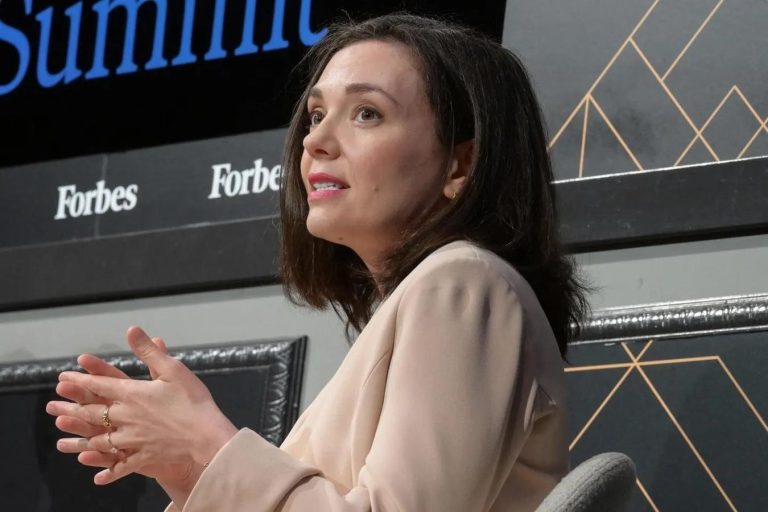More than a decade ago, when Cari Tuna and her husband, billionaire Facebook cofounder Dustin Moskovitz, started to explore how they’d give away the vast majority of their wealth (now some $20 billion) during their lifetimes, they took an effective altruist’s view of things. Instead of donating to the causes they were most passionate about, they decided to give to those likely to create the greatest impact per dollar. In support of that they cofounded Open Philanthropy and funded everything from the Malaria Consortium to the Center for AI Safety—but they largely did it themselves. And that was never really the idea.
So today Open Philanthropy is rebranding as Coefficient Giving and emphasizing to the public what Tuna and Moskovitz always wanted it to be: a multi-donor effort that aims to use and advise charitable donations for maximum impact. The vision was always to make this “not just for Dustin and me, but also for other donors,” Tuna says. And with Coefficient that’s in the name. “Co” reflects its status as a multi-donor organization, “efficient” emphasizes its focus on cost effectiveness, and “coefficient” is a math term for a number that multiplies the value of what it’s paired with. To date, the Good Ventures Foundation—Tuna and Moskovitz’s private foundation with $10 billion in assets—has primarily funded Coefficient Giving. As such, people often perceive the latter as “Dustin and Cari’s thing,” according to Coefficient Giving CEO Alexander Berger. Now, that’s going to change.
“We’re aiming to be a little bit more ‘open for business,’” says Berger. “ It’s really the culmination of the vision that we set out when we started Open Philanthropy with Cari, which was building this resource that would be ready for the next set of donors.”
Coefficient Giving is already well on its way to that goal. More than $200 million in commitments to its initiatives this year have come from other funders, up from approximately $100 million last year. New billionaire funders include Stripe cofounder Patrick Collison, Lucy Southworth (Google cofounder Larry Page’s wife) and Bill Gates. They’ve helped seed two themed $100-million plus funds: the Lead Exposure Action Fund (LEAF), launched last year, and the Abundance and Growth Fund, launched in March. LEAF has so far distributed $40 million, and its biggest grant so far is $17 million to Pure Earth to help it identify spices, ceramics and other causes of lead exposure in India and other countries.
Billionaires have historically given where other billionaires give. As such Coefficient Giving’s rebrand is part of a broader trend among the wealthy towards pooled funding—particularly for philanthropists trying to get donors to fund a wider array of causes beyond their immediate network (commonly alma maters and medical centers). Lever for Change, which spun out of the MacArthur Foundation in 2019, touts itself as a “shovel-ready” vehicle to help wealthy donors give their money to more grassroots (and hopefully more diverse) organizations. Investment firm and money manager Iconiq Capital launched Iconiq Impact in 2019 to emphasize pooled donations called “co-labs,” and has helped its funders dole out more than $500 million. There’s also the bipolar research initiative from Google cofounder Sergey Brin, Roblox’s David Baszucki and Keystone Capital’s Ken Dauten, who contributed $50 million each.
Berger says Coefficient Giving is most similar to Blue Meridian, founded in 2016, which touts its investor-minded approach very explicitly: grants are labeled “investments” that go through “funds” with specific domestic focus areas like social mobility and criminal justice reform. (Gates, Brin and MacKenzie Scott have all partnered with Blue Meridian.) The main difference, Berger says, is what causes the organizations focus on. “We think that [by] looking globally and looking beyond direct service to advocacy, research and policy, you can often find higher returns,” Berger says.
Have a tip? Contact Phoebe Liu at pliu@forbes.com or phoebe.789 on Signal.
Tuna stresses that soliciting funding from more donors doesn’t mean she and Moskovitz will slow down their pace of giving. They plan to increase it, aiming to reach a point where they are donating money faster than they’re making it. With their donations and those of others, they are hoping to increase Coefficient Giving’s impact—and thus influence. Ideally, that’ll mean more children who don’t get malaria, more people with clean water, and fewer with lead poisoning. AI safety will be harder given the billions of dollars at play. But Coefficient is undaunted; it’s directed more than $100 million to AI safety initiatives so far this year.


